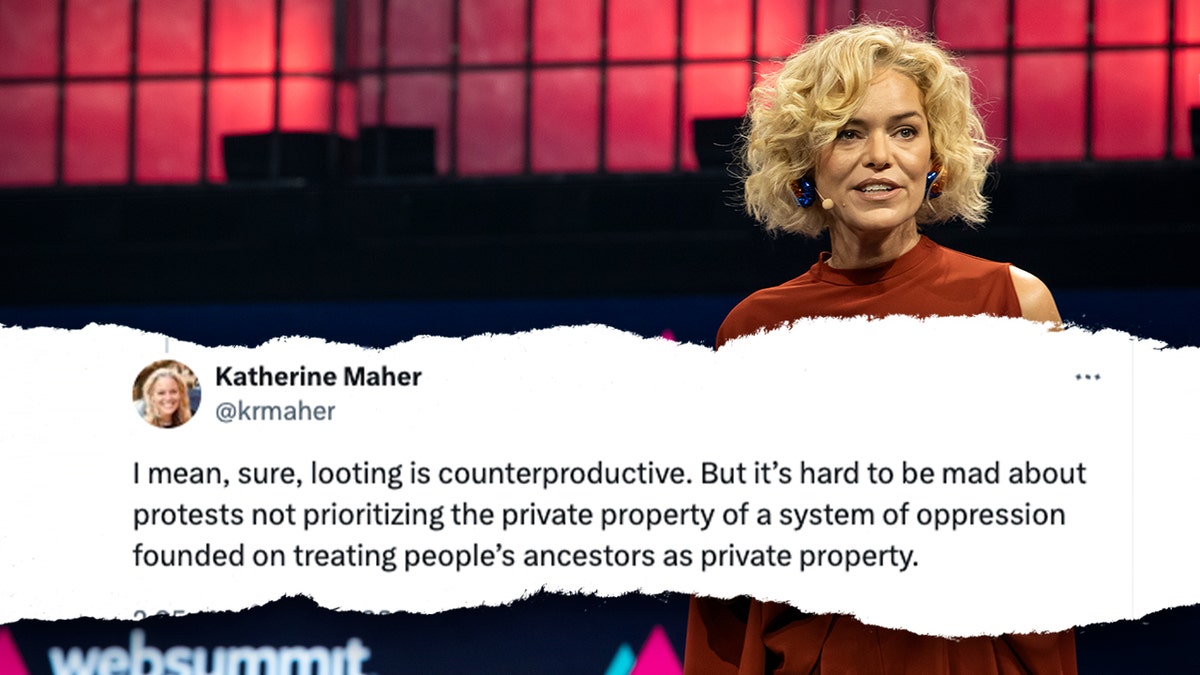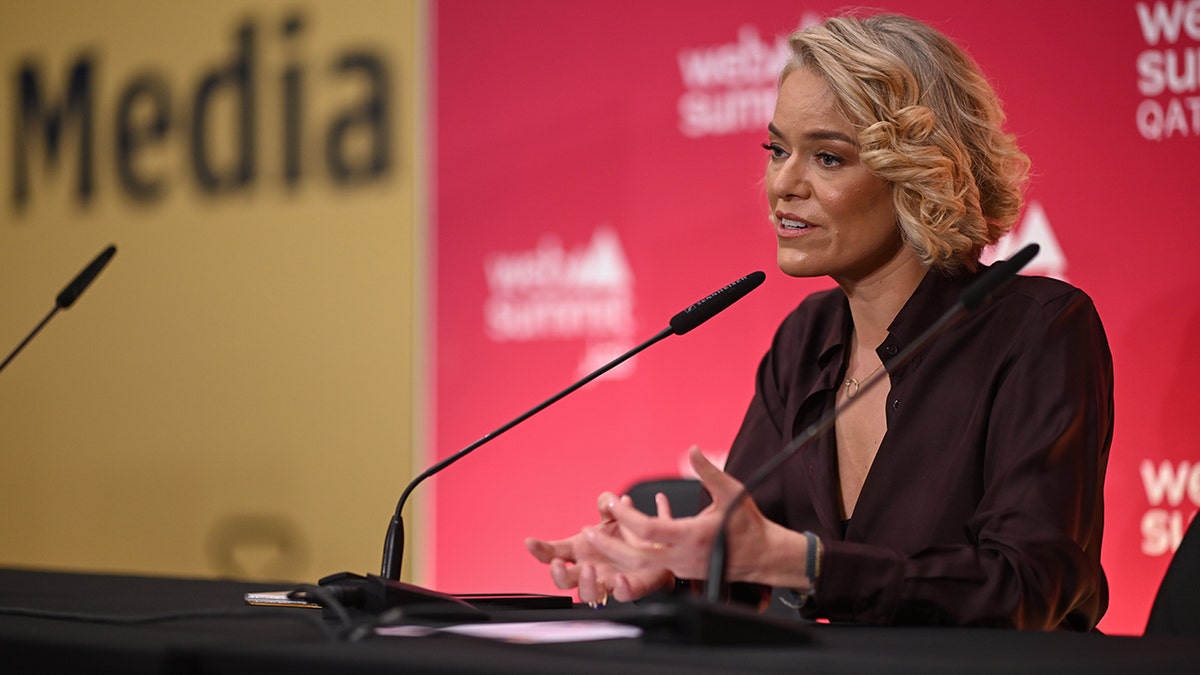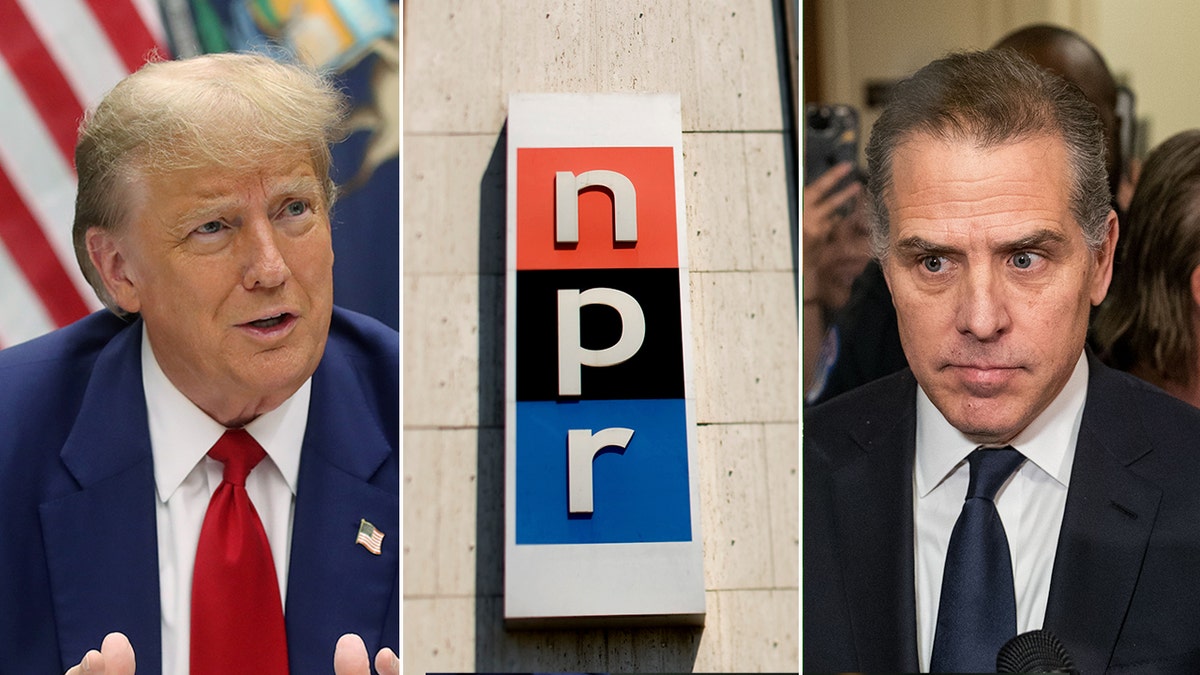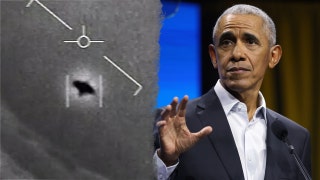Longtime NPR editor rips own employer over alleged political bias
Fox News' Howard Kurtz reacts to the media organization coming under fire for its liberal leanings in its coverage on 'Special Report.
NPR President and CEO Katherine Maher has gone viral over her old tweets, which show her support for Hillary Clinton in 2016 and Joe Biden in 2020, after she attempted to address a senior NPR editor's concerns about the outlet's left-leaning bias.
Maher, who took over as NPR's CEO and president last month, wrote a letter to NPR staffers on Friday after senior editor Uri Berliner called out his own outlet's biased reporting on major news stories, such as Russiagate, Hunter Biden's laptop and the COVID-19 lab leak theory.
Maher said questioning the integrity of NPR's journalists was "hurtful" and "demeaning."
"Asking a question about whether we're living up to our mission should always be fair game: after all, journalism is nothing if not hard questions. Questioning whether our people are serving our mission with integrity, based on little more than the recognition of their identity, is profoundly disrespectful, hurtful, and demeaning," Maher wrote in the letter to staff, Fox News Digital reported.

NPR SEO and President Katherine Maher's old tweets about looting, her support for Hillary Clinton and Biden-Harris have resurfaced after she addressed Uri Berliner's concerns about NPR in a letter to staff. ( (Photo by Rita Franca/NurPhoto via Getty Images), Screenshot/X/KatherineMaher)
NPR EDITOR'S BOMBSHELL ESSAY CAUSING 'TURMOIL' AT LIBERAL OUTLET: REPORT
Maher's own posts suggest her impartiality can be questioned, however.
Maher, who served as the CEO for Web Summit and Wikimedia Foundation prior to taking over NPR, wrote on X in May 2020 that while "looting is counterproductive," it was "hard to be mad about protests not prioritizing the private property of a system of oppression founded on treating people's ancestors as private property."
In another post on the thread, Maher said that property damage was "not the thing" Americans should be upset over.
"Also to be clear, I am not conflating provocateurs with protestors. Instead, saying this should not be the thing anyone sheds tears over. Cheesecakes are insured; the right to be black and breathe is without measure," she wrote.
The New York Times published an op-ed in 2020 by Sen. Tom Cotton, R-Ar., in June 2020 titled: "Send in the Troops," which made an argument in favor of the president deploying the military to quell the George Floyd riots that sparked havoc in cities across the country.
The op-ed was met with widespread backlash from reporters at the newspaper. The op-ed was updated with a lengthy editors note and two members of the Times Opinion staff, James Bennet and Adam Rubenstein, were pushed out at the Times as a result. Another staffer, James Dao, was reassigned to a different department.
Maher took issue with the Cotton op-ed in 2020 as well, and said it was "full of racist dog whistles." She argued it was based on the "false premise that the country is in a state of ‘disorder.'"
"It's more correctly in a state of protest (disorder itself being racially coded for anytime white supremacy is challenged)," she added.
Maher said it "shamed the NYT to publish an op-ed that sh/would never have passed journalistic editorial review.
In another 2020 post, Maher is seen donning a Biden for President hat and said it was the "best part" of her "get out the vote" efforts.
Several of her old posts that have resurfaced reference concern over White privilege, and concern over "White silence."

Katherine Maher, former CEO of Web Summit, during a press conference at Media Village on day one of Web Summit Qatar 2024 at the Doha Exhibition and Convention Center in Doha, Qatar. (Photo By Stephen McCarthy/Sportsfile for Web Summit Qatar via Getty Images) ((Photo By Stephen McCarthy/Sportsfile for Web Summit Qatar via Getty Images))
NPR RELIED ON ‘EVER-PRESENT MUSE' ADAM SCHIFF DURING RUSSIAGATE TO ‘DAMAGE’ TRUMP, EDITOR SAYS
In June 2020, Maher declared "White silence is complicity."
"If you are White, today is the day to start a conversation in your community," she continued.
The NPR president wrote in July 2020 that there were "lots of jokes about leaving the U.S."
"I get it. But as someone with cis white mobility privilege, I'm thinking I'm staying and investing in ridding ourselves of this specter of tyranny," she added.
And some social media posts that date back to 2016 have resurfaced as well. Maher identified herself as an "unalloyed progressive" supporting Clinton in the 2016 election.
She also had some criticism for Clinton at the time, and said she wished the former Democratic presidential nominee "wouldn't use the language of ‘boy and girl,'" because it was "erasing language for non-binary people."
Critics, such as Donald Trump and other members of the GOP, have called to "defund NPR," in response to the resurfaced social media posts, and Berliner's concerns about the outlet's reporting.
The Corporation for Public Broadcasting (CPB), a private, nonprofit body which distributes federal funding to NPR and PBS, was granted $525 million in advanced funding for 2024. It was created out of the 1967 Public Broadcasting Act to disburse federal grants to public broadcasters around the country. NPR has insisted it receives "less than 1 percent of its $300 million annual budget" from the federally funded CPB, but a deep dive into the data shows CPB funds smaller stations that funnel cash to NPR.

An NPR editor spoke out against his own outlet about their past media coverage of Trump and Russia, the Hunter Biden laptop story and more. (Left: (Photo by Spencer Platt/Getty Images) Center: (Photo by Brooks Kraft LLC/Corbis via Getty Images), Right: (Photo by Kent Nishimura/Getty Images))
CLICK HERE TO GET THE FOX NEWS APP
Berliner wrote in an essay for the Free Press that NPR's coverage veered off the deep end when Trump was elected in 2016. He cited its coverage of Russiagate first and said NPR "hitched our wagon" to Rep. Adam Schiff, D-Calif., who peddled Trump-Russia collusion claims for years.
In his essay for The Free Press, Berliner noted Maher joining the company and advised her not to "tell people how to think."
"A few weeks ago, NPR welcomed a new CEO, Katherine Maher, who’s been a leader in tech. She doesn’t have a news background, which could be an asset given where things stand. I’ll be rooting for her. It’s a tough job. Her first rule could be simple enough: don’t tell people how to think," he wrote.
NPR didn't respond to a request for comment.
Fox News' Joseph A. Wulfsohn and Brian Flood contributed to this report.









































